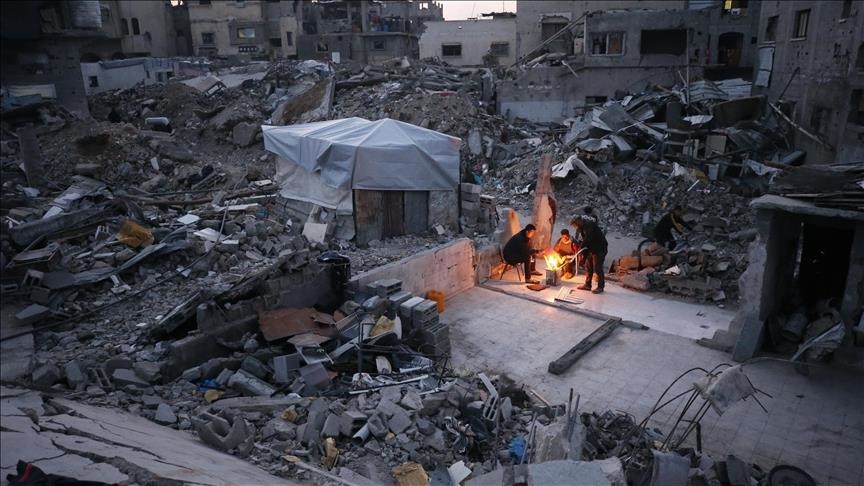Global alliance for two-state solution strongly opposes displacement of Gazans
Egypt reaffirms commitment to sovereign Palestinian state

CAIRO
The fourth meeting of the Global Alliance for the Implementation of the Two-State Solution took place Monday in the Egyptian capital Cairo, with strong opposition to the displacement of Palestinians dominating discussions.
Hosted by Egyptian Foreign Minister Badr Abdelatty, it brought together senior diplomats, including UN agency for Palestinian refugees (UNRWA) Commissioner-General Philippe Lazzarini, UN humanitarian coordinator for Gaza Sigrid Kaag and representatives from more than 35 countries and international organizations, according to a ministry statement.
Saudi Arabia launched the coalition in September 2024, with its first meeting held in Riyadh the following month.
In his opening remarks, Abdelatty reaffirmed Egypt’s full commitment to the two-state solution, advocating for a Palestinian state along the 1967 borders, with East Jerusalem as its capital. He emphasized that this is the only viable path to lasting regional peace.
He praised Saudi Arabia’s initiative in establishing the coalition and underscored the importance of collaborative efforts to implement it.
Egypt firmly opposes any forced displacement of Palestinians, a stance echoed by other Arab states and the broader international community, he said.
Recently, US President Donald Trump proposed “taking over” Gaza, resettling Palestinians in neighboring countries and turning the enclave into “the Riviera of the Middle East,” which was met with widespread condemnation from the Arab world and beyond.
Abdelatty also highlighted Egypt’s efforts to develop a phased plan for early recovery and Gaza’s reconstruction. He underscored the urgent need to support UNRWA’s humanitarian role, condemning recent Israeli legislation aimed at obstructing the agency’s operations.
He further emphasized the humanitarian crisis in the occupied Palestinian territories, stressing the need for continued support for UNRWA, which he described as “indispensable and irreplaceable.” He also condemned the Israeli parliament’s recent passage of two laws aimed at obstructing the agency’s work.
UNRWA has provided vital relief, health and educational services to Palestinian refugees across five areas of operation: the West Bank, including East Jerusalem, Gaza, Syria, Lebanon and Jordan.
Lazzarini highlighted the agency’s central role in delivering essential services to Palestinians while also detailing the challenges posed by Israeli restrictions.
Kaag expressed hope for stabilizing the ceasefire agreement and easing humanitarian access to Gaza. She also presented preliminary estimates of the cost of rebuilding the Gaza Strip, the statement added, without specifying a figure.
Egypt and Qatar continue intensive mediation efforts to sustain the agreement amid Israeli violations and logistical challenges preventing the full implementation of its first phase.








